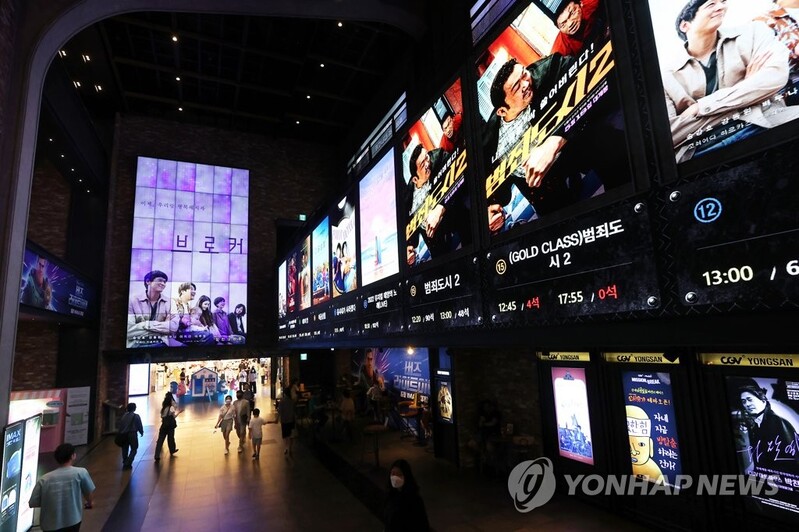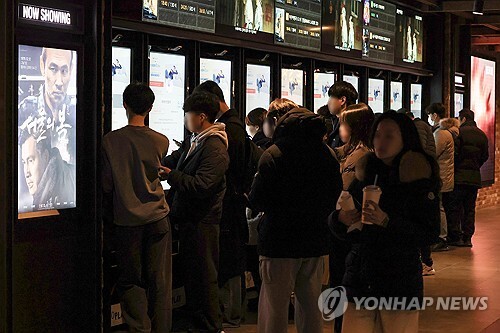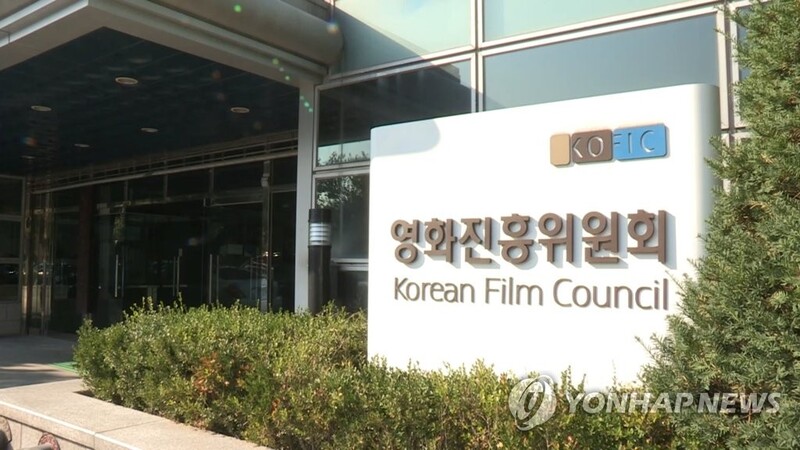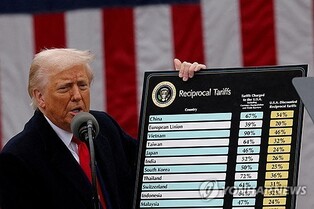 |
| ▲ This file photo from June 12, 2022, shows a multiplex cinema in Seoul. (Yonhap) |
By Oh Bo-ram
SEOUL, April 5 (Yonhap) -- The South Korean movie industry has begun actively debating the government's plan to abolish the movie theater admission levy from January next year, with film organizations issuing their first opposing statements on the 4th.
The levy, which is around 3% of the movie ticket price, is used as funding for the Korean Film Coucil (KOFIC). The abolition agenda has raised concerns, especially among independent filmmakers and theater owners, as it is seen as a signal for the government to decrease movie ticket prices.
The government assures that it will maintain the film development fund through the budget even after abolishing the levy, but independent filmmakers and theater owners remain skeptical. The fund supports various aspects of the film industry, including providing assistance to films that rely solely on ticket revenue, such as works by rookie directors, independent and artistic films, and regional films. The fund also plays a crucial role in organizing film festivals.
The issue lies in the decreasing budget of the film development fund. Although the government stated that it would support the fund's budget instead of the levy, some argue that the specific scale of this support has not been determined. Without a concrete roadmap, the abolition of the levy could potentially deal a blow to the movie industry, especially when the fund is running low.
A congregation of 20 movie organizations in opposition to the levy abolition have criticized the situation, stating, "This year's budget for the film development fund has decreased by 36% compared to the previous year, reaching 46.7 billion won... As a result, projects essential for the future of Korean cinema are being reduced or discontinued."
Won Seung-hwan, director of the independent cinema Indie Space, also questioned the government's actions. He told Yonhap News, "Hasn't funding for creator support projects and film festival-related budgets been cut due to a lack of funds just this year alone?"
The Ministry of Culture, Sports and Tourism responded to the statement from the film coalition shortly afterward, stating, "We plan to support film industry promotion projects at the same level as before the abolition of the levy by utilizing general accounts and other sources... Specific support details will be determined when the budget for 2025 is prepared."
 |
| ▲ This file photo from June 12, 2022, shows a multiplex cinema in Seoul. (Yonhap) |
It's not easy to connect the abolition of the levy to a reduction in ticket prices. Even if the levy is abolished, theaters are not obliged to lower ticket prices, and with the gradual recovery of audience numbers from the sharp decline during the COVID-19 period, it may not happen immediately.
A multiplex theater official commented, "The COVID-19 period was a 'lost four years' with astronomical losses," stating that it would be difficult to lower ticket prices immediately before compensating for the losses incurred during that period.
However, it's challenging to lower prices to match the abolished levy. Lowering the ticket price by only the amount of the abolished levy, say 400 won, might provoke consumer backlash. Comments on social media platforms like Twitter and others echo this sentiment, with reactions such as, "Even if you cut 3% from a 15,000 won ticket, it's only 450 won. Is that beneficial to the people?" and "It's only 500 won at most, it needs to be lowered more to be noticeable."
Movie enthusiast Han Mo, who visits theaters weekly, commented, "It would have to be reduced by at least 1,000 won for consumers to feel that 'movie prices have become cheaper'," adding, "From a consumer's perspective, there's not much difference between 15,000 won and 14,600 won."
 |
| ▲ An undated image captured from Yonhap News TV (PHOTO NOT FOR SALE) (Yonhap) |
(C) Yonhap News Agency. All Rights Reserved




















![[속보] '케데헌', 美골든글로브 애니메이션상도 수상…2관왕](https://korean-vibe.com/news/data/20260112/yna1065624915979467_136_thum.jpg)


